If you want to learn more about the relationship between people and the world we live in, you may be interested in a geography degree.

Bachelors programs in geography offer a multifaceted approach to studying the Earth and how humans live on it. You may learn about everything from statistics to cartography and hydrology.
Editorial Listing ShortCode:
Many students use a bachelors in geography to qualify for entry-level jobs or to pursue graduate studies in a related field.
Online Bachelors in Geography Degrees

Bachelors degrees in geography teach students about the relationship between human populations and the environment. These programs may look at the Earth’s surface through various sociological, physical, and scientific perspectives.
While enrolled in an online bachelors in geography program, you may study some of the following topics:
- Spatial analysis
- Cartography
- Cultural geography
- Weather patterns
- Physical geography
- Statistics
- Geographic education
- Environmental science
Besides classes focused on geography, you may take core classes like math and science as well as electives as part of your undergraduate curriculum. You may also have a chance to participate in lab work, fieldwork, internships, and more.
Editorial Listing ShortCode:
Graduates may go on to pursue further education after getting their bachelors, such as getting a master’s in engineering or urban planning. You may also choose to apply to entry-level roles in your chosen career path. Professionals with a degree in geography might work as geographers, hydrologists, surveyors, and more. They may also pursue roles as cartographers and urban planners.
By enrolling in a bachelor’s in geography program, you can learn a wide range of skill sets, including computer technology, mapping, and sustainability. You may also choose to focus on a certain specialization with further education and graduate studies, such as cartography or engineering.
Geography Careers and Salaries
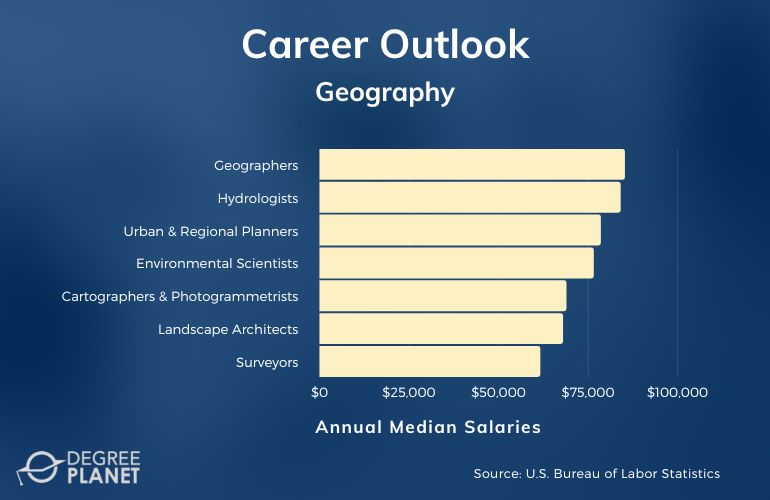
Graduates with a bachelor’s degree in geography typically pursue careers related to natural, social, and environmental science.
A career as a geographer may be a versatile one, where no two days are exactly the same. Geographers typically conduct research, gather and analyze data, and present their findings, all with the broad goal of learning more about the land and everything living on it.
Other careers related to geography include hydrologists, geological technicians, and surveyors. These roles generally perform similar duties in their specialization. For example, hydrologists conduct research and analyze data surrounding the Earth’s water supply.
According to the Bureau of Labor Statistics, these are some career options related to the study of geography.
| Careers | Annual Median Salaries |
| Geographers | $85,220 |
| Hydrologists | $84,030 |
| Urban and Regional Planners | $78,500 |
| Environmental Scientists and Specialists | $76,530 |
| Cartographers and Photogrammetrists | $68,900 |
| Landscape Architects | $67,950 |
| Surveyors | $61,600 |
| Civil Engineering Technologists and Technicians | $58,320 |
| Geological and Hydrologic Technicians | $50,080 |
| Surveying and Mapping Technicians | $46,910 |
Jobs associated with geography tend to make higher than average salaries, but a degree in this field doesn’t guarantee a specific position or salary.
Editorial Listing ShortCode:
Some of these roles—such as landscape architect, urban planner, and environmental scientist—may require further education or specialized training. A geography degree is also a solid foundation for graduate studies in a range of fields, including engineering, environmental science, business, law, and public health.
Bachelor of Geography Curriculum & Courses

Your curriculum in a geography bachelor’s program can vary, but here are some examples of classes you may take:
- Geographic Information Science: You’ll learn the foundations for geography, including spatial analysis and geospatial technologies.
- Introductions to Physical Geology: This class looks at the intersection of different geographical elements, including water and plants.
- Introduction to Human Geography: You’ll learn about how people impact geography through economic and political perspectives.
- Landforms: This course dives into various physical geographical elements, like rivers, glaciers, and minerals.
- Cultural Geography: You’ll learn about various cultural and societal beliefs from different groups of people all over the world.
- Climatology: This class teaches you to analyze characteristics of climates in worldwide and local regions.
- People, Places, and Perspectives in the Global South: You’ll learn in-depth about the Global South, including the different challenges that communities face there.
- Statistics for Geography and Planning: This course teaches you how to analyze geographical data with statistical methods.
- Land Use Planning for Sustainable Communities: You’ll study the history of community planning and how to begin the process.
- Transforming Environmental Conflicts: This class covers the environmental experiences of various groups of people, with the goal of creating sustainable solutions for the future.
In addition to geography-based classes, you’ll most likely take a variety of core requirements, like math and science. Some bachelor’s programs offer opportunities for lab work or internships as well.
Admissions Requirements

There are varying admissions requirements for a bachelor degree in geography, but a few common ones are listed below:
- High school diploma
- SAT or ACT scores (only required by some schools)
- Official transcripts
- Personal essay
Schools may want you to submit high school transcripts so they can check your GPA if they have a minimum GPA requirement. Some schools also want to see that you have completed specific courses, such as in math and science.
Accreditation
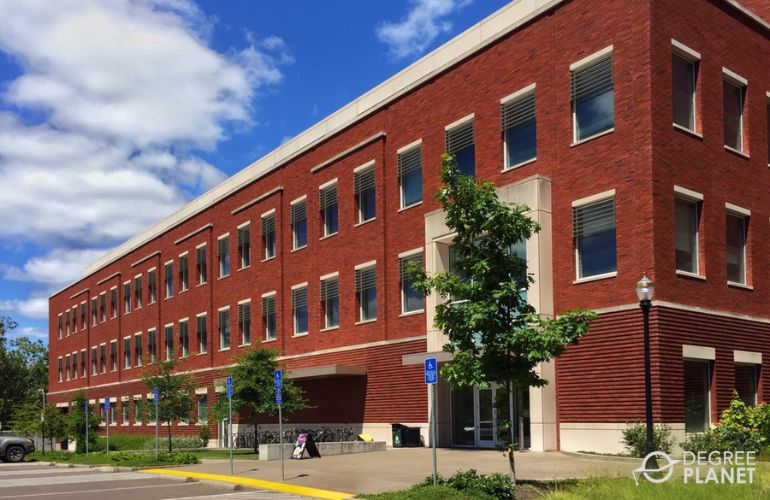
When looking for a school to get your bachelor degree in geography, it’s important to consider colleges and universities that are regionally accredited. A school can become regionally accredited when it has met a series of academic quality standards.
If you’re hoping to apply for financial aid, attending an accredited school is a necessary step for eligibility. The school you attend may also have an impact on your job search down the line, as some employers prefer applicants with a regionally accredited school on their resume.
Editorial Listing ShortCode:
To learn more about accreditation, you can visit the US Department of Education’s website.
Financial Aid and Scholarships

Applying for financial aid can be a strategic option for qualifying students. The Federal Student Aid website outlines various options for need-based aid from the government, including loans, grants, and more.
Undergraduate students may be able to apply for direct subsidized loans, but the amount of money they receive would likely be determined by your school. Qualifying students may also be able to participate in work-study programs, in which they can work to help pay for their school costs. Additional aid may be available for qualifying students from military families or for those studying outside the US.
There is also a range of scholarship opportunities offered by schools, professional organizations, and private institutions.
What Is a Geography Major?

A geography major is a student who studies how people affect the environment and vice versa. Geography majors examine this relationship through various lenses and disciplines, including natural sciences and social sciences.
These types of students may use technology to map and analyze different geographical landscapes. They can also look at the physical components of the environment and how people form communities based on geographical factors. Besides standard geography classes, geography majors often take courses in science, engineering, computer science, sociology, and more.
Is Geography Hard?

Geography majors study the intersection of people and the environment, and they can look at this crossover from many different perspectives. They may look at climate change, differences in global regions, mapping, and more.
Many geography students also learn different technologies to better map and understand the environment. They will likely study statistics, geographic information science, and land use planning. These courses can require a wide skill set. Internships and lab work may also be part of geography bachelor’s programs. These opportunities let you practically apply the knowledge you learn in the classroom.
What Can You Do with a Geography Degree?

With a major in geography, you may be able to pursue entry-level careers in a variety of fields, including architecture, environmental science, and regional planning.
Graduates may work toward roles as geographers, surveyors, hydrologists, cartographers, and geographic information system (GIS) specialists, among others. After receiving a bachelors degree, you may want to continue your education in an on-campus or online geography masters program. You may also choose to pursue a masters in a physical science or natural resources field.
For instance, an undergraduate degree in geography can be a solid foundation for further study in engineering, landscape architecture, environmental science, and urban planning.
How Long Does It Take to Get a Bachelors Degree in Geography Online?

The timeframe for completing a geography degree can vary. Typically, it takes students 4 years to complete their bachelors program, provided they are enrolled in a traditional, 16-week semester program. This timeframe also assumes that they are attending classes full-time.
If students would like to graduate in less than 4 years, they may be able to do so by enrolling in year-round courses, including during the summer. It may also help to follow an 8-week semester.
What Does a Geographer Do?

A geographer studies the environment and how it intersects with humans. Physical geographers look at various elements of the earth, like the land and sea, while human geographers examine the ways people affect the earth.
Editorial Listing ShortCode:
Geographers generally spend their workdays gathering and analyzing data from the environment using technology and their own observations from the field. They may work on map-making, urban planning, environmental policy creation, and more. Due to the versatile nature of this field, geographers may focus on a range of specializations, from hydrology to climate change.
What Jobs Can You Get with a Geography Degree?

Professionals with a geography degree may work in a variety of fields, from engineering to environmental science and urban planning.
Graduates may choose to pursue career paths in the geography field itself as a geographer, hydrologist, geological technician, and more. A geography degree can also help graduates work toward careers as urban planners, environmental specialists, and landscape architects.
Other common careers in the field include surveyor, surveying and mapping technician, cartographer, and geographic information system (GIS) specialist.
What’s the Difference Between Geology vs. Geography Majors?
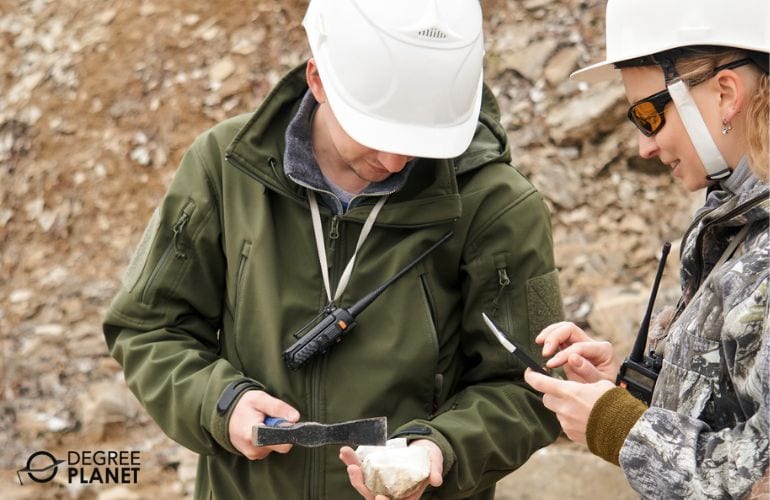
While geology and geography have some overlap, there are some differences between these two disciplines.
A geology major will likely study:
- The Earth’s inner structure
- The Earth’s history
- The Earth’s rocks and minerals
A geography major will likely study:
- The Earth’s surface
- How people and the environment interact
- How climate change affects the environment
In general, geography majors study the relationship between people and the landscape on the Earth’s surface, while geology majors look at how the Earth’s structure has evolved over time.
Is a Bachelors in Geography Degree Worth It?
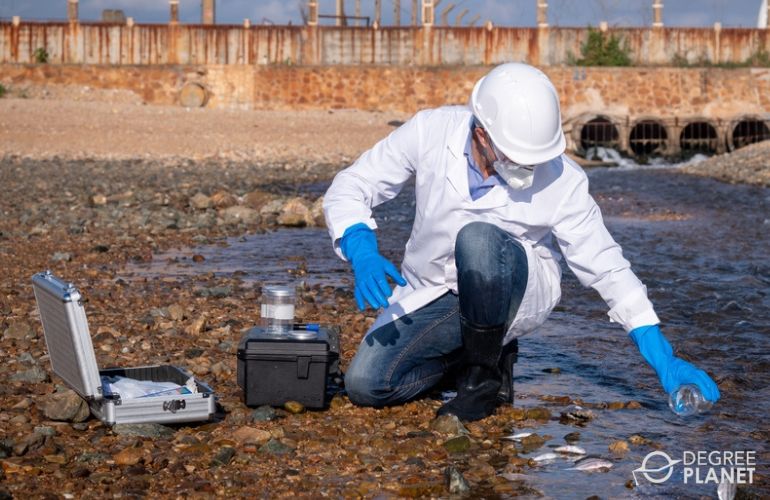
Yes, a bachelors in geography degree is worth it for many students. Not every graduate goes on to become a geographer, as this major is versatile and can be applied to a wide range of career pursuits. Common careers related to this field include surveyors, cartographers, GIS specialists, and urban planners.
Editorial Listing ShortCode:
Overall, the Bureau of Labor Statistics projects 7% job growth for life, physical, and social science occupations over the next ten years. Graduates with a geography degree can also choose to pursue further education in a range of fields, from environmental science to law.
Universities Offering Online Bachelors in Geography Degree Programs
Methodology: The following school list is in alphabetical order. To be included, a college or university must be regionally accredited and offer degree programs online or in a hybrid format.

Arizona State University offers a Bachelor of Science in Geography. Many graduates pursue careers in fields like urban planning, consulting, activism, community development, research, and higher education. Classes meet 100% online, and each one is 7.5 weeks long. The 120 credit curriculum covers concepts like landforms, climate zones, economics, transportation, and population studies.
Arizona State University is accredited by the Higher Learning Commission.

Florida International University offers a Bachelor of Arts in Geography and Global Studies. Potential courses include World Ethnographies, Applications of Geographic Information Systems, and Geography of Global Change. A minimum of 120 credits must be completed while maintaining a 2.0 GPA or higher to graduate. The program admits incoming students three times a year.
Florida International University is accredited by the Southern Association of Colleges and Schools Commission on Colleges.
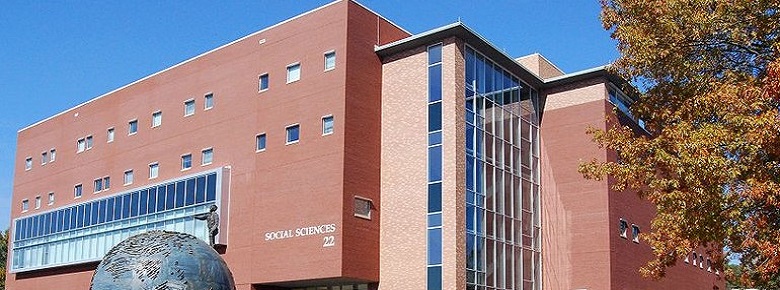
Kennesaw State University offers a Bachelor of Arts in Geography. This program may be an excellent option for students who are interested in learning more about human culture, language, climate and weather, and economics. The completion of 123 credits is required to graduate. Classes may be attended fully online, though fieldwork experiences and face-to-face opportunities may be available.
Kennesaw State University is accredited by the Southern Association of Colleges and Schools Commission on Colleges.

Marshall University offers an online program for a Bachelor’s in Geography. Students may select a Bachelor of Arts or a Bachelor of Sciences depending on their specific interests and professional goals. Up to 72 qualifying credit hours from outside institutions may be transferred in toward the program’s 120 required credit hours. The program offers three start dates a year.
Marshall University is accredited by the Higher Learning Commission.

Liberty University offers a Bachelor of Science in Geography. Classes cover key concepts in geography, like geographic research, political geography, cultural anthropology, and geographic information systems. The program utilizes an entirely online learning format. On average, the program’s 120 required credit hours can be completed in 3.5 years of full-time attendance.
Liberty University is accredited by the Southern Association of Colleges and Schools Commission on Colleges.
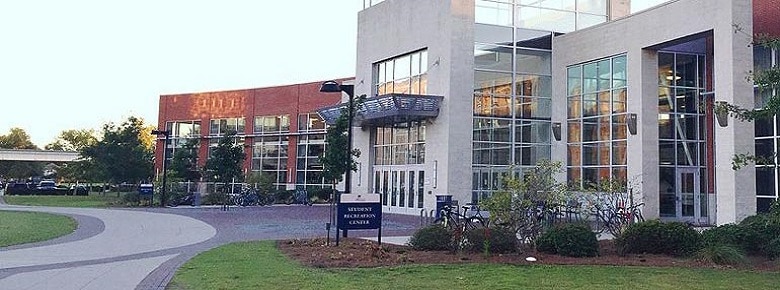
Old Dominion University offers a Bachelor of Science and a Bachelor of Arts in Geography. Concentrations are offered in Urban Planning and Emergency Management, Environment and Resources, and Geographic Information Systems. The curriculum consists of 120 credit hours. Graduates often pursue careers as GIS analysts, transportation planners, geospatial analysts, or project managers.
Old Dominion University is accredited by the Southern Association of Colleges and Schools Commission on Colleges.
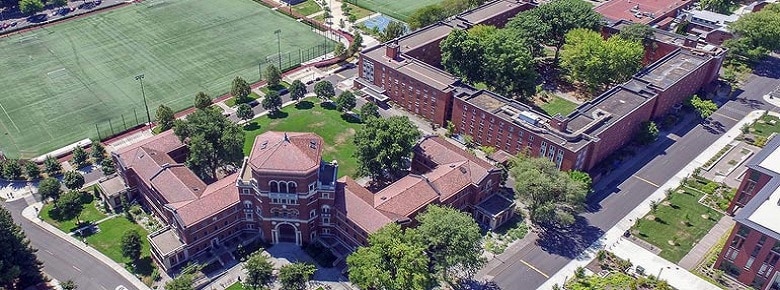
Oregon State University offers a Bachelor of Science in Geography and Geospatial Science. Courses cover topics like climate justice, human environment geography, geovisualization, cartography, web mapping, and geospatial science. The curriculum consists of 180 credits and utilizes a 100% online learning model. The program offers 4 start dates a year.
Oregon State University is accredited by the Northwest Commission on Colleges and Universities.
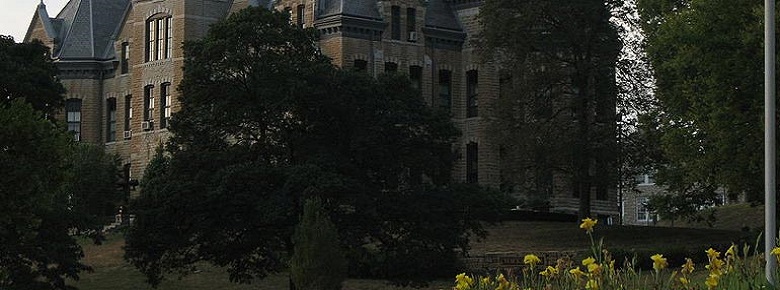
Park State University offers a Bachelor of Science in Geography. Potential courses include Cultural Geography, Global Sustainability, Geography of North America, and Global Information Systems. Classes may be taken fully online or at one of several campuses. The program requires the completion of 120 credit hours with a minimum GPA of 2.0.
Park University is accredited by the Higher Learning Commission.
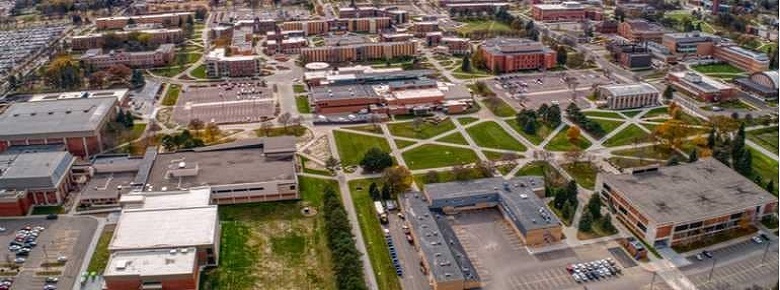
South Dakota State University offers a Bachelor of Science and a Bachelor of Arts in Geography. Classes may be attended online or on campus. Many graduates pursue careers as tourism planners, land managers, teachers, urban planners, or geographic information systems analysts.
SDSU is accredited by the Higher Learning Commission.

The University of Florida offers a Bachelor of Arts in Geography. This program may be an ideal next step for individuals interested in pursuing careers related to business geography, urban planning, environmental science, or geographic education. It is housed 100% online, and the program’s 120 required credits can typically be completed in 4 years of full-time study.
The University of Florida is accredited by the Southern Association of Colleges and Schools Commission on Colleges.
Getting Your Geography Degree Online

If you enjoy learning about the Earth and how it affects humans, getting a bachelors in geography may be a strategic degree path for you. Online degree programs often allow for additional flexibility in your schedule.
You can study climate change, sustainability, weather patterns, and other factors that affect the way the Earth functions today. You may also get the chance to do fieldwork, lab work, and internships to further your study.
To take the first step toward a degree in geography, you can begin exploring available programs from accredited universities today.

